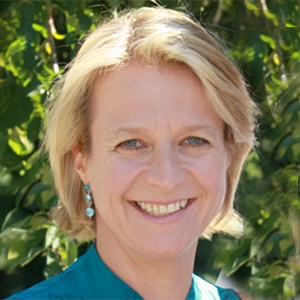Speakers

Ms. Elizabeth Granger
Director,
Openground: Australian Centre for Mindfulness
Elizabeth is a co-founding Director of the charity Openground - Australian Centre for Mindfulness and Compassion, and has been teaching MBSR through Openground since 2007. Prior to that Elizabeth worked as a litigation lawyer for 14 years, including at partnership level.
Elizabeth has led many successful mindfulness and leadership programs in the corporate, educational, health and community sectors. Her clients include Microsoft, Boston Consulting Group, Commonwealth Bank, PWC (PricewaterhouseCoopers), Investec, Macquarie Bank, Genea, Snowy Hydro, Bayer, TressCox Lawyers, The Law Societies of NSW and ACT, doctors at Royal Prince Alfred Hospital, and St Paul's College, University of Sydney.
For the last 5 years Elizabeth also pioneered the Mindfulness for Veterans, Family Members and Carers Program which was independently researched and found strong, clinically meaningful and lasting reductions in PTSD symptoms, anger reactivity and psychological distress, along with improved emotional regulation and relationships.
Elizabeth has also recently led the first 8 week mindfulness programs to Federal Parliamentarians and their staffers and is on the Australian Expert Panel to the Global Mindfulness Initiative which supports the cultivation of mindfulness and compassion amongst legislators worldwide to shift political culture and elicit wiser policy making.
The power of connection – mindfulness training for healing trauma for veterans and their families
“Safety is not the absence of threat. It is the presence of connection”.
Gabor Mate
Drawing on Openground’s work with veterans and their families over the last five years, this presentation will discuss the power of intensive meditation training and the group process in transforming the effects of trauma.
Funded by the Department of Veterans Affairs, the internationally renowned, evidence based 8-week Mindfulness-Based Stress Reduction (MBSR) program was customised to improve the mental well-being of veterans and their families (MBSR-V), with the aim of reducing their burden of suffering that stems from PTSD and can lead to the threat and reality of suicide.
This presentation will explore the method, lived experience and outcomes of MBSR-V, with a particular focus on how the program not only offers immediate skills which enhance emotional regulation fostering growth and confidence, but also breaks down a sense of isolation and disconnection, which is a known risk factor for suicide. We will demonstrate how offering collective attention to shared suffering addresses the existential aspects of trauma as the relationships within the group and with the teacher facilitates a greater sense of connection.
The first pilot program was independently researched using standardised research measures and found:
- Psychological distress scores for 82% of participants prior to the course were at severe risk of poor mental health and by follow up at one month this reduced to 9%
- At baseline 51% of participants met criteria for a provisional PTSD diagnosis and this reduced to 28% at the end of the program and further reduced to 21% at 4 week follow-up
- Base line scores for anger reactivity showed 38% in the high risk category but by reduced at follow-up to 10%
- By the end of the program 76% of participants noticed beneficial changes in their relationships which increased to 85% at 4 weeks follow-up.
The presentation will also include an experiential aspect where attendees will be invited to participate in a brief mindfulness practice as a way of exploring how the power of awareness and connection can transform the effects of trauma and offers a fresh way of being and living, rather than simply being a “treatment” for problems.
back